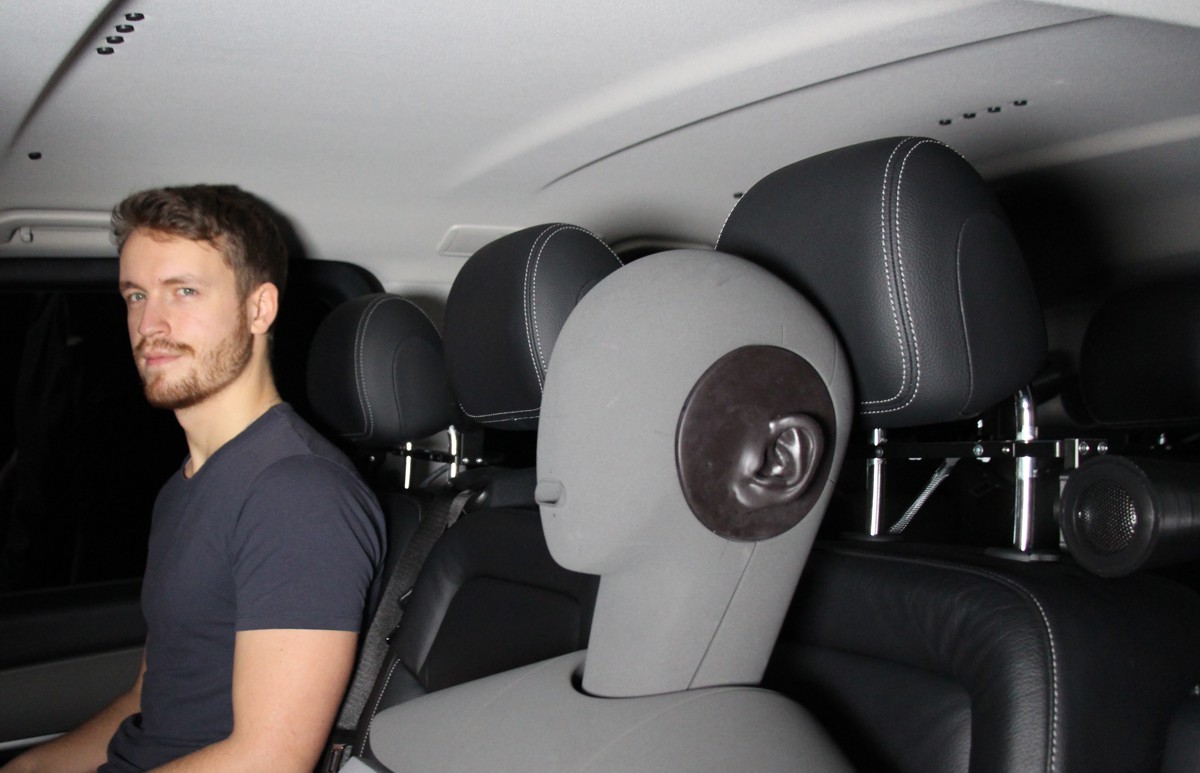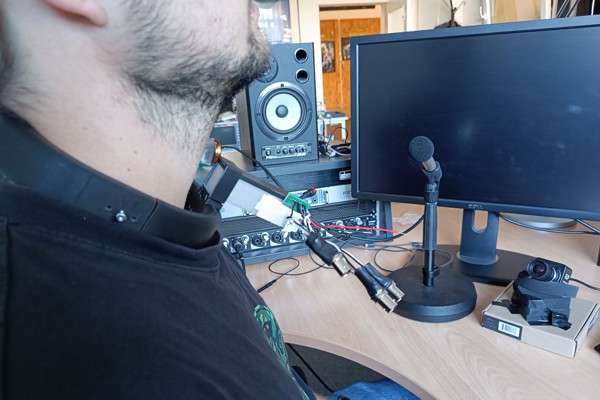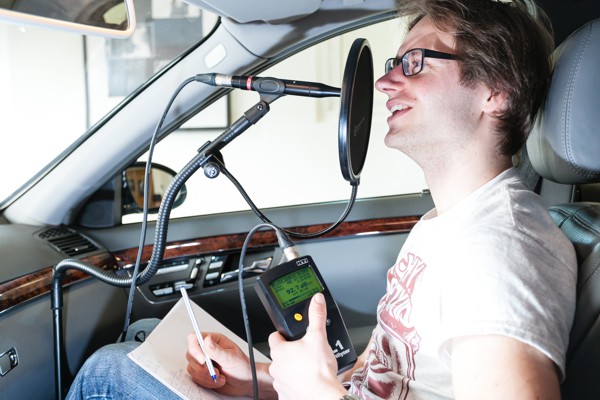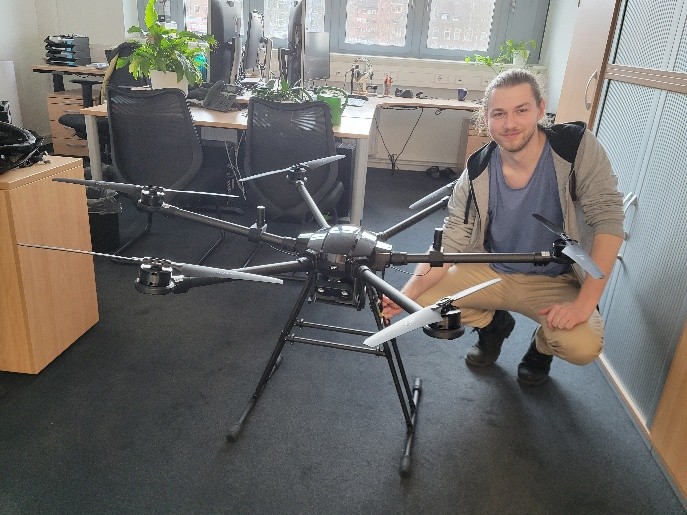| ANIR Corpus |
 The "ANIR" (Automotive Noise and Impulse Responses) corpus allows investigating automotive speech and audio processing. Currently, impulse responses are measured from different sources (mouth loudspeakers, car loudspeakers) to different sinks (ear microphones, in-car microphones). Additionally, several driving conditions (standstill, slow and fast speed) are recorded in terms of noise examples. Details ... The "ANIR" (Automotive Noise and Impulse Responses) corpus allows investigating automotive speech and audio processing. Currently, impulse responses are measured from different sources (mouth loudspeakers, car loudspeakers) to different sinks (ear microphones, in-car microphones). Additionally, several driving conditions (standstill, slow and fast speed) are recorded in terms of noise examples. Details ... |
| MuMoSD Corpus |
 The "MuMoSD" (MultiModal Swallowing Detection) corpus is a database that contains various signals from volunteers performing different tasks, including swallowing. Swallowing issues can lead to choking, coughing, nasal regurgitation, pain, malnutrition, and more. This is why developing techniques for analyzing swallowing is crucial for early symptom detection. MuMoSD includes tasks such as swallowing different liquids, coughing, and speech, recorded using various sensors. Details ... The "MuMoSD" (MultiModal Swallowing Detection) corpus is a database that contains various signals from volunteers performing different tasks, including swallowing. Swallowing issues can lead to choking, coughing, nasal regurgitation, pain, malnutrition, and more. This is why developing techniques for analyzing swallowing is crucial for early symptom detection. MuMoSD includes tasks such as swallowing different liquids, coughing, and speech, recorded using various sensors. Details ... |
| SPID Corpus |
 The "SPID" (SPontaneous In-car Dialogues) corpus allows investigating - for the first time ever - the communication between speakers inside a driving car and the Lombard effect that emerges at different driving speeds. Currently, speech recordings are made in order to analyze the effects of an in-car-communication (ICC) system on speech production at different driving noise levels. Details ... The "SPID" (SPontaneous In-car Dialogues) corpus allows investigating - for the first time ever - the communication between speakers inside a driving car and the Lombard effect that emerges at different driving speeds. Currently, speech recordings are made in order to analyze the effects of an in-car-communication (ICC) system on speech production at different driving noise levels. Details ... |
| SUMS Corpus |
 The "SUMS" (Speech Under Multiple Stressors) corpus allows investigating the effects of multiple stressors to speech. This corpus addresses the questions on which basis and in which way all the different stress types shine through and combine in the acoustic speech signal. We used several stressors that form a taxonomy of stress factors. Pink noise served as an external stressor. A further stress factor, cognitive load, was created by asking quiz questions. Details ... The "SUMS" (Speech Under Multiple Stressors) corpus allows investigating the effects of multiple stressors to speech. This corpus addresses the questions on which basis and in which way all the different stress types shine through and combine in the acoustic speech signal. We used several stressors that form a taxonomy of stress factors. Pink noise served as an external stressor. A further stress factor, cognitive load, was created by asking quiz questions. Details ... |
 The "ANIR" (Automotive Noise and Impulse Responses) corpus allows investigating automotive speech and audio processing. Currently, impulse responses are measured from different sources (mouth loudspeakers, car loudspeakers) to different sinks (ear microphones, in-car microphones). Additionally, several driving conditions (standstill, slow and fast speed) are recorded in terms of noise examples. Details ...
The "ANIR" (Automotive Noise and Impulse Responses) corpus allows investigating automotive speech and audio processing. Currently, impulse responses are measured from different sources (mouth loudspeakers, car loudspeakers) to different sinks (ear microphones, in-car microphones). Additionally, several driving conditions (standstill, slow and fast speed) are recorded in terms of noise examples. Details ... The "MuMoSD" (MultiModal Swallowing Detection) corpus is a database that contains various signals from volunteers performing different tasks, including swallowing. Swallowing issues can lead to choking, coughing, nasal regurgitation, pain, malnutrition, and more. This is why developing techniques for analyzing swallowing is crucial for early symptom detection. MuMoSD includes tasks such as swallowing different liquids, coughing, and speech, recorded using various sensors. Details ...
The "MuMoSD" (MultiModal Swallowing Detection) corpus is a database that contains various signals from volunteers performing different tasks, including swallowing. Swallowing issues can lead to choking, coughing, nasal regurgitation, pain, malnutrition, and more. This is why developing techniques for analyzing swallowing is crucial for early symptom detection. MuMoSD includes tasks such as swallowing different liquids, coughing, and speech, recorded using various sensors. Details ... The "SPID" (SPontaneous In-car Dialogues) corpus allows investigating - for the first time ever - the communication between speakers inside a driving car and the Lombard effect that emerges at different driving speeds. Currently, speech recordings are made in order to analyze the effects of an in-car-communication (ICC) system on speech production at different driving noise levels. Details ...
The "SPID" (SPontaneous In-car Dialogues) corpus allows investigating - for the first time ever - the communication between speakers inside a driving car and the Lombard effect that emerges at different driving speeds. Currently, speech recordings are made in order to analyze the effects of an in-car-communication (ICC) system on speech production at different driving noise levels. Details ... The "SUMS" (Speech Under Multiple Stressors) corpus allows investigating the effects of multiple stressors to speech. This corpus addresses the questions on which basis and in which way all the different stress types shine through and combine in the acoustic speech signal. We used several stressors that form a taxonomy of stress factors. Pink noise served as an external stressor. A further stress factor, cognitive load, was created by asking quiz questions. Details ...
The "SUMS" (Speech Under Multiple Stressors) corpus allows investigating the effects of multiple stressors to speech. This corpus addresses the questions on which basis and in which way all the different stress types shine through and combine in the acoustic speech signal. We used several stressors that form a taxonomy of stress factors. Pink noise served as an external stressor. A further stress factor, cognitive load, was created by asking quiz questions. Details ...
 We were happy to welcome Sören Lange as a new member of our team at the beginning of the year. In his master’s thesis, he focused on signal processing for innovative underwater opto-acoustic sensor systems and has since then taken on new challenges in the field of magnetic sensors. His research interests span a wide range of topics, including signal processing and control engineering. With his friendly attitude, technical curiosity and expertise, Sören is a great addition to our team. We look forward to working with him!
We were happy to welcome Sören Lange as a new member of our team at the beginning of the year. In his master’s thesis, he focused on signal processing for innovative underwater opto-acoustic sensor systems and has since then taken on new challenges in the field of magnetic sensors. His research interests span a wide range of topics, including signal processing and control engineering. With his friendly attitude, technical curiosity and expertise, Sören is a great addition to our team. We look forward to working with him!